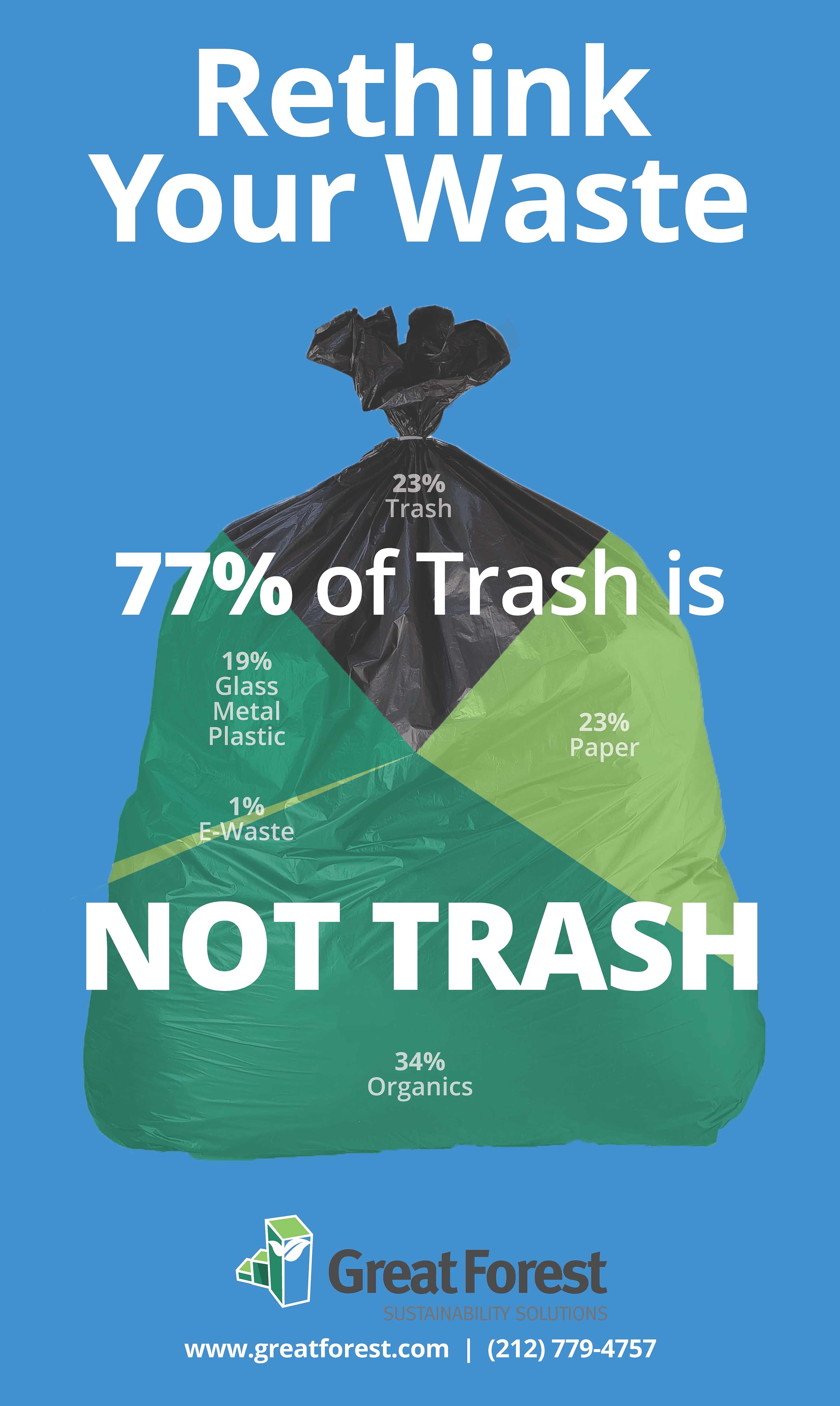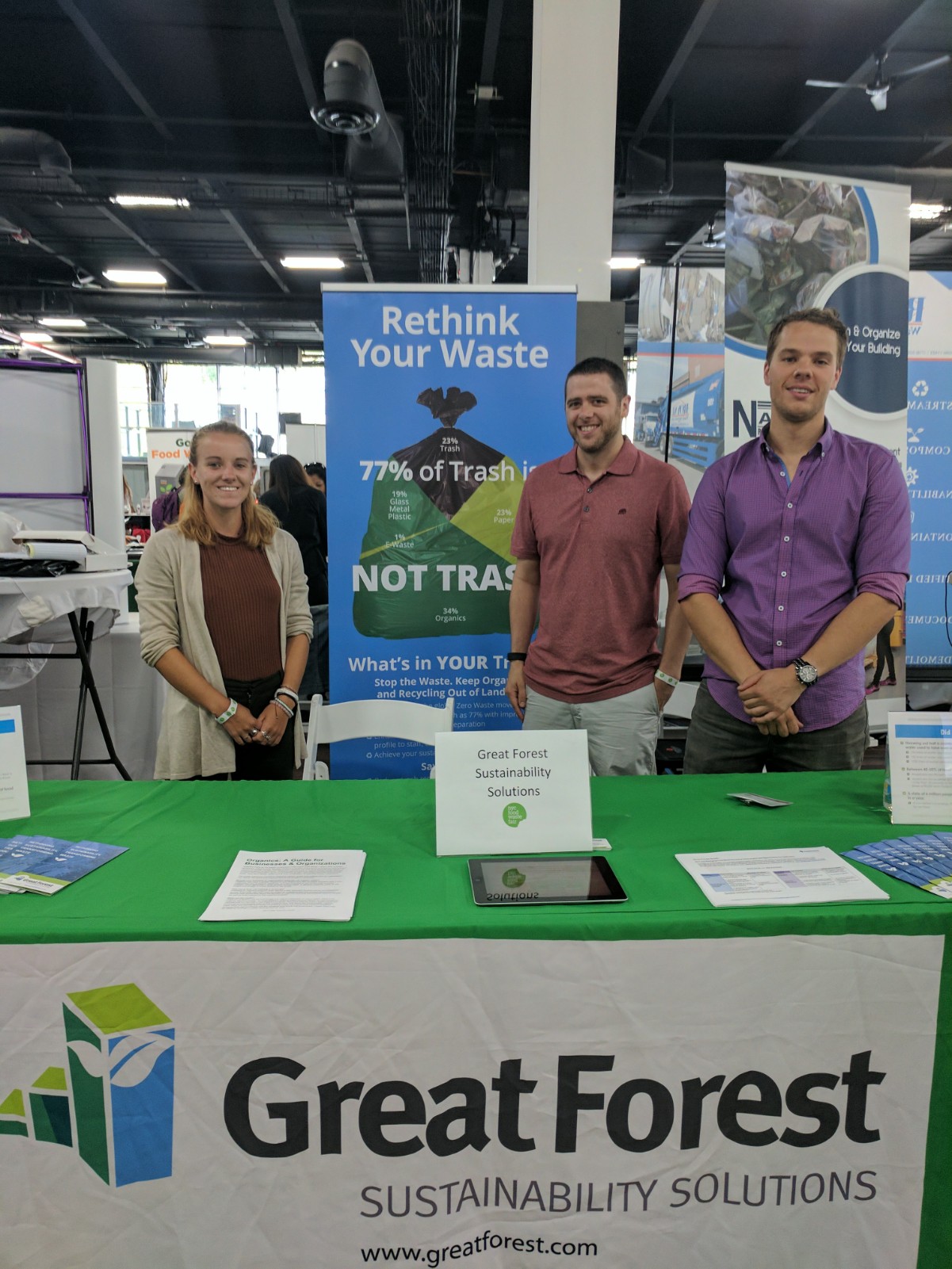
Survey Based On 100 Waste Audits Reveal Much About What A Typical Office Throws Out
Did you know, the average commercial office waste stream in the U.S. consists of approximately 77% recyclable and compostable materials, with only about 23% being real “trash.” This revelation comes from a survey of 100 commercial waste audits conducted across the country by Great Forest.
77% of what is usually thrown out as trash is NOT trash at all but is made up of organics (34%), followed by paper (23%), glass/metal/plastic (19%), and e-waste (1%).
Not only are many businesses losing 77% of the recyclable commodities they are discarding in the trash, but they may also be paying more for waste removal than they should. That is a lot of lost value.
Stephanie Barger of the U.S. Zero Waste Business Council put it best when she said this during a panel at the inaugural NYC Food Waste Fair held in July 2017:
“…every time you throw away recyclables, you throw away jobs and resources.”

Waste Audits Are Key
So how much trash is in your trash? How much value are you losing? The only way to find out is to conduct a waste audit.
Various businesses that shared their experiences during panels at the NYC Food Waste Fair agreed about the importance of tracking and analyzing waste [read our new waste audit case study].
- Etsy reported that they do waste audits on a daily basis
- Dr. Nadereh Afsharmanesh of Earth Friendly Products told the audience that she personally looks in the company’s dumpster each week after discovering that 60% of what was in their trash were recyclables.
- Sodexo is reportedly conducting waste trainings to teach select staff how to do waste audits.
What does this mean for you?
The answer is simple. You can make a BIG impact just by capturing and effectively dealing with ALL your recyclables, including organics.
- To do this, start with a waste audit. Find out what you really are throwing away. A waste audit will give you the crucial data you need to make informed decisions, including improvements that can be made to your existing waste and recycling program.
- Consider a centralized waste bin system. Companies can reduce what goes into their waste stream by implementing strategic waste management initiatives that improve separation of waste materials. A centralized waste bin system is one of the easiest ways to do that. Download this free white paper to learn more.
The benefits?
- Reduce trash by as much as 77% with improved organics and recycling separation
- Be a leader in the global Zero Waste movement
- Enhance your environmental profile to staff, clients, and stakeholders
- Achieve your sustainability goals
- Save money by reducing trash removal costs, avoiding fines, and improving operational efficiency
Learn more about waste audits:
- Case Study: Waste Audits Uncover Sizable Revenue Stream For Global Brand
- Waste Audits: What Are They, Why They Are Important
- How to Plan A Waste Audit, dumpsters.com
Learn more about addressing your organics:

